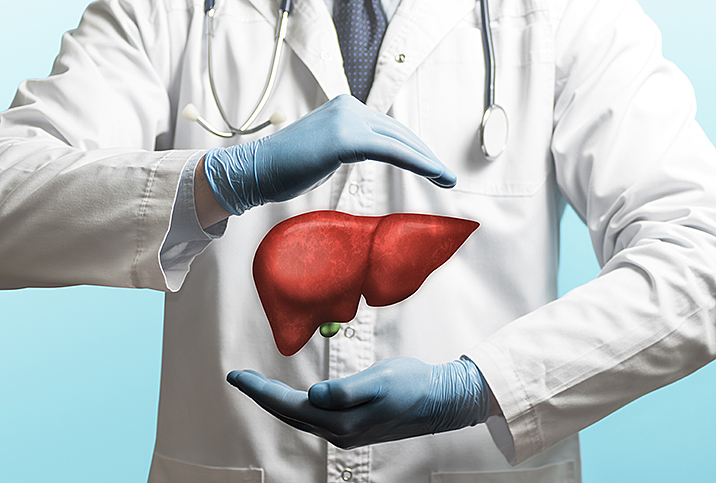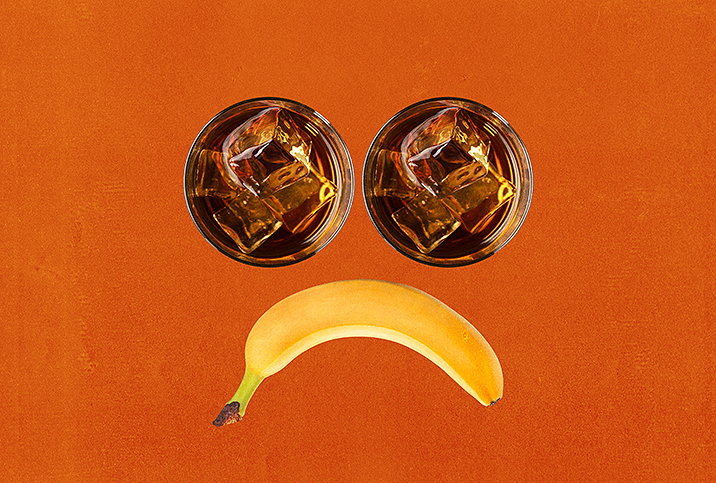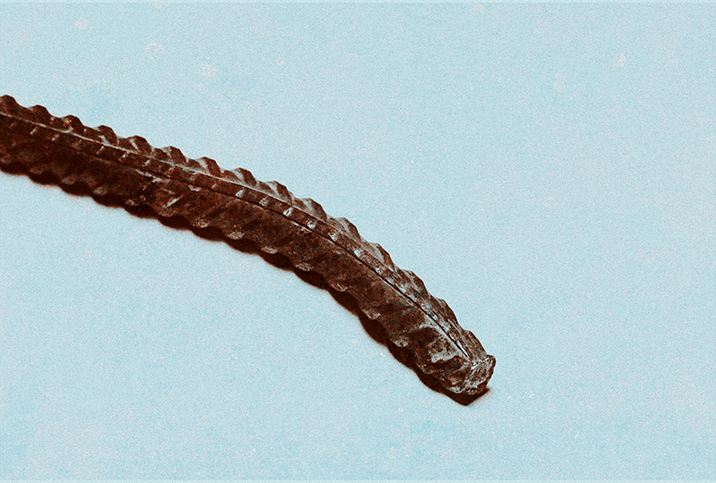How Your Liver May Cause Erectile Dysfunction

Did you know the largest internal organ in the human body is as big as a football? Yep. The liver can't be thrown in a tight spiral, but it boasts similar dimensions to one of America's most popular pieces of sports equipment.
This primary organ has a few key functions in the human body. It's responsible for digestion, filtration, protein synthesis and more.
You can't live without a liver—that's how important it is to your overall health.
Keeping your liver happy and healthy can help you avoid liver dysfunction, which can be the result of genetics, alcoholism or medical conditions, and could lead to all sorts of problems, including nausea, bruising, jaundice, blood infections and even symptoms of erectile dysfunction (ED) in a male.
While it is one of the lesser-known effects of liver dysfunction, ED can occur during various stages of liver disease, including cirrhosis, the final step before liver failure.
According to a study published by Liver International, about two-thirds of men with cirrhosis exhibit at least some level of erectile problems, and ED is impacted by liver dysfunction, diabetes, portal hypertension (elevated pressure in the major vein that leads to the liver) and arterial hypertension (high blood pressure disorder in the arteries of the lungs).
Dysfunction of the liver affects people's overall physical health, but it's important to talk about how it affects sexual health, too.
What exactly is liver dysfunction and its symptoms?
The liver is an essential organ that helps regulate the levels of numerous components in your blood.
"Liver dysfunction entails any abnormalities in liver function, including the synthesis, processing and removal of many essential blood components, including chemicals, proteins, nutrients and fats," said Denise Asafu-Adjei, M.D., the medical director of male reproductive medicine at Loyola University Chicago Stritch School of Medicine.
Much like a number of dysfunctions that affect the human body, liver disease develops over time and in stages:
- Stage 1: Inflammation. Toxins in the blood cause swelling in the liver.
- Stage 2: Fibrosis. The liver develops scarring when stage 1 isn't treated.
- Stage 3: Cirrhosis. Severe, irreversible scarring of the liver occurs.
- Stage 4: Liver failure. The liver stops functioning and a liver transplant is necessary.
These stages can happen over time and even span decades before the disease reaches stage 4. However, the final stage can, under certain circumstances, happen quickly due to toxicity or a drug overdose.
Causes of liver dysfunction
Multiple factors can cause liver problems. Genetics and a person's lifestyle, such as excessive alcohol consumption, are two. Or it could be caused by medications or be secondary to direct medical interventions, according to Asafu-Adjei.
More than 2,000 cases of liver failure occur each year in the United States, and half of them are due to medications, according to Sharon Orrange, M.D., an associate professor of clinical medicine at the Keck School of Medicine of the University of Southern California and a medical advisor for the telehealth site GoodRx. Amoxicillin/clavulanate and Tylenol are examples of two common medications that should be used in moderation because they can affect your liver. Additionally, viruses such as hepatitis could cause symptoms of liver dysfunction.
Liver dysfunction's ties to male erectile dysfunction
ED and liver dysfunction are indirectly related.
"The liver makes molecules that are important in how the body processes testosterone, a hormone important for sexual drive and function," Asafu-Adjei explained. "In liver disease, one of those molecules is serum hormone-binding globulin [SHBG], which binds to testosterone and controls how much testosterone is available for the body to use. In liver dysfunction, SHBG levels are typically elevated, lowering the amount of free testosterone available for use by the body."
That decreased testosterone level can be a contributor to sexual dysfunction.
Severe liver disease can also have hemodynamic (blood flow) and vascular effects, said Robert Caruso, M.D., a urologist at Clara Maass Medical Center in Belleville, New Jersey. One example he pointed to is how a backup of venous blood flow can directly impact the penis's ability to trap blood to maintain an erection.
In most cases, liver dysfunction and ED are both a result of the same problem.
"For example, the iron levels in our body can affect liver health and testosterone levels and libido, which are a factor in erectile function," Caruso said. "Additionally, fatty liver, which is an early-stage liver disease, can be caused by many factors, such as a glut of calories from sugars and fats or excessive alcohol that the liver scrambles to convert and store in the liver as fat, which can elevate cholesterol and impact circulation in the penis."
How to treat ED symptoms from liver damage
It's important to treat the underlying cause of liver dysfunction, which is more sustainable than simply treating the outcomes of its effects, according to Asafu-Adjei.
Addressing liver dysfunction helps normalize the blood levels of essential proteins and molecules that are required for proper testosterone function.
"Liver dysfunction can be treated along with ED using medications that directly treat ED," Asafu-Adjei said, adding the goal is normal liver function, which will restore the balance of these proteins and, ultimately, normalize testosterone use in the body.
Fortunately, some doctors subspecialize in liver function and can help patients with a treatment plan for their liver and ED.
In the case of severe liver disease that impacts hemodynamics, the damage often can't be reversed, according to Caruso. At this point, the top priority becomes preventing it from worsening.
"However, moderate and severe liver cirrhosis that affects venous return can be treated surgically by shunting, and this can improve some of the hemodynamic forces and may also improve erectile function," he concluded.


















